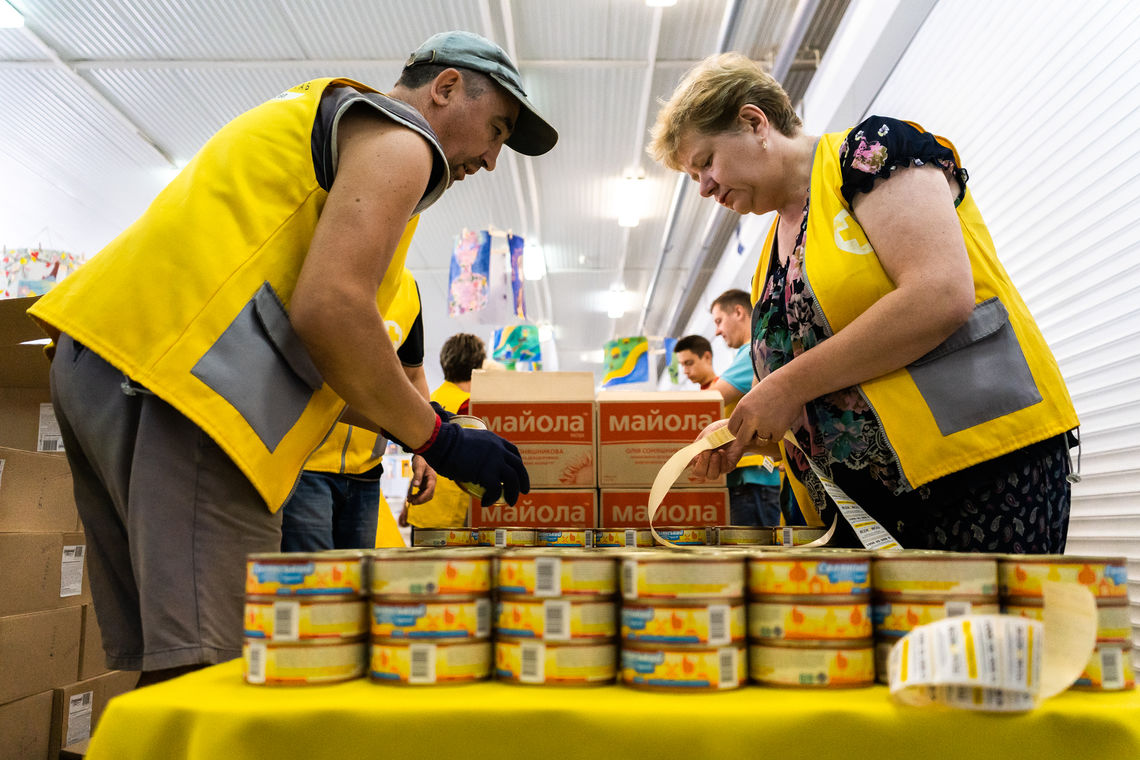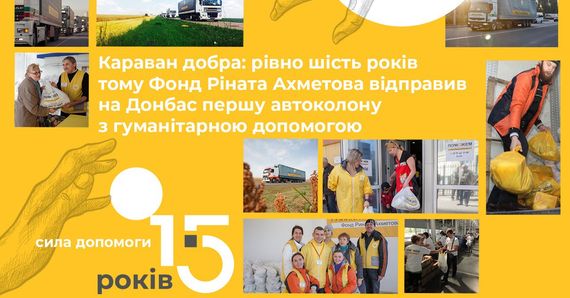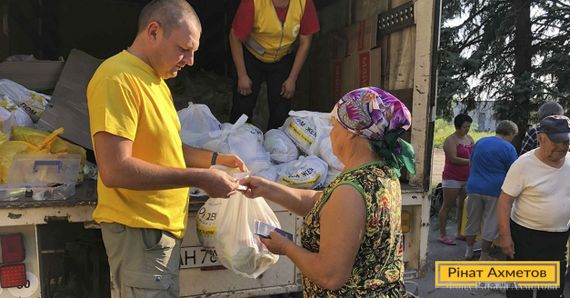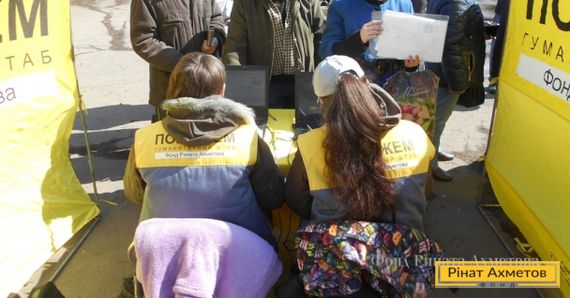Food packages

Implementation years: 2014-2020
Humanitarian aid from Rinat Akhmetov is delivered to 94 towns and villages located in the frontline area and along the contact line. The Foundation’s mobile distribution crews bring survival parcels to residents of 87 villages. In another seven towns and villages in the Donbass, Rinat Akhmetov’s aid is distributed via permanent outlets.
According to UN data, 3.5 million people in the Donbass still need humanitarian aid. What civilians need the most is food. Among those who need help are children, the elderly, the disabled, families with many children. For many of them, food packages from the Rinat Akhmetov Foundation became the only chance to survive.
The Foundation has developed a unique system of delivering food aid: mobile distribution crews. Beginning from 21 May 2015, the Rinat Akhmetov Foundation’s mobile volunteers have been delivering food parcels to civilians living in small towns and villages in hard-to-access locations and along the contact line in the Donbass region. Humanitarian aid was distributed on both sides of the confrontation line. On 28 February 2017, operations of Rinat Akhmetov’s Humanitarian Center in the government-uncontrolled territory were blocked and subsequently prohibited. Over 500,000 people were left without help.
In another seven towns and villages in the Donbass, Rinat Akhmetov aid is distributed via permanent outlets. During the years of its operation, Rinat Akhmetov Humanitarian Center distributed over 12.3 million food packages. Lives of more than one million people were saved.
Food packages: quality control
The Foundation controls the quality of food it distributes at all stages of delivering humanitarian aid. All these foods are produced in Ukraine, are quality-certified and have long residual shelf life.
Since its inception, Rinat Akhmetov Humanitarian Center built from scratch one large mechanism of delivering aid: food procurement, storage at the distribution center in Dnipro, delivery to the Foundation’s logistics centers in Donetsk and Mariupol, and distribution of survival packages.
Today, a unique food packages control, stuffing and distribution system exists only at the logistics center in Mariupol.
Five phases of food quality control
- 1. Delivery from supplier
All procured food is delivered to the distribution center in Mariupol. The availability of quality certificates, integrity of packaging and shelf life for every new shipment are checked. If a poor-quality food is found, the supplier is required to replace the entire batch.
- 2. At an independent laboratory
Every unit from the food packages is checked for quality at an independent laboratory, where it is subjected to an organoleptic (taste, smell, consistency, color, absence of foreign admixtures) and physico-technical (weight and salt content) test. At the end of the test, the Center receives a certified test protocol.
- 3. At the Humanitarian Center’s distribution facility
Volunteers of the logistics center in Mariupol check the food when unloading truck columns, devoting special attention to temperature inside the trailer and the quality of packaging. Our storage facilities are compliant with all sanitary norms and zoning rules, and the food is stored there under proper temperature and air humidity.
- 4. During labeling and stuffing
Food and packaging quality are monitored during the stuffing of every survival parcel at our logistics center. Volunteers label every unit with a special sticker: “Humanitarian aid. Not for sale”, checking the food one more time.
- 5. Monitoring recipient testimonials
People call the Rinat Akhmetov Foundation’s hotline number 0-800-509-001 to leave suggestions on how to improve performance of the Humanitarian Center and packages distribution outlets, or reviews on the packages. Our staff considers every review and fixes problems. To receive a feedback on our performance, hotline operators call some 1500 aid recipients a month, while the Humanitarian Center’s staff monitors user comments and reviews online.
.jpg?content_type=image%2Fjpeg&disposition=inline%3B+filename%3D%22photo5332632614940553424+%25281%2529.jpg%22%3B+filename%2A%3DUTF-8%27%27photo5332632614940553424%2520%25281%2529.jpg)



